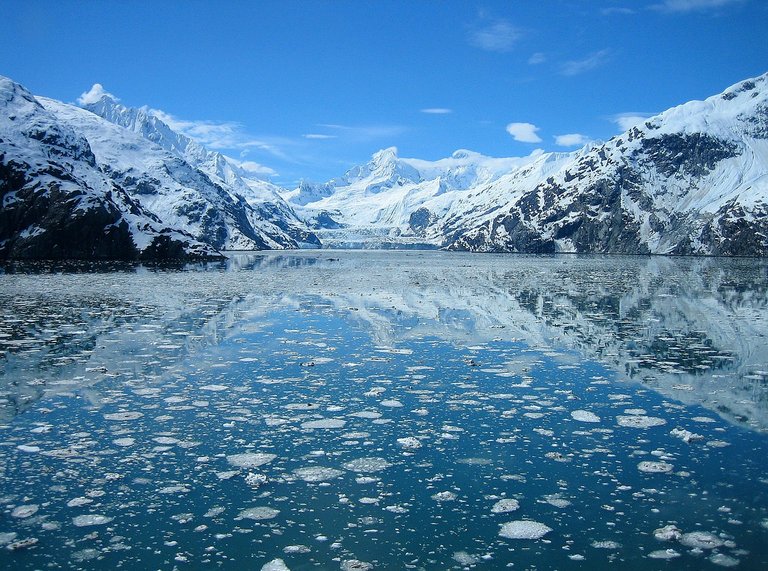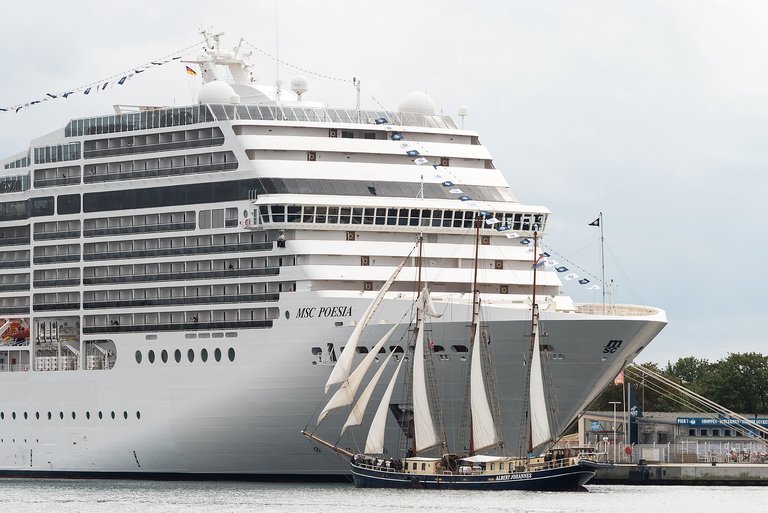Cruise ships are back. And it’s a catastrophe for the environment - Marine Conservation News

Cruise ships kill whales, leak gray water, and are largely exempt from US taxation. When they violate the law, they pay the equivalent of a parking ticket
With pandemic restriction loosening up there are now a much higher rate of cruise lines operating again, which also means that all the environmental healing that was able to happen may not last. It's not an end of the world situation, but cruise lines contribute massive amounts of pollution to the oceans, kill wildlife, and pass the buck to the locals by paying barely any taxes or fines when they do cause damage.
Kim Heacox of the Guardian, as well as an ex cruise liner worker, explains how these cruise lines pollute, kill cetaceans, and pay little in fines for the breaking environmental protection laws.
- "In July 2001, the carcass of a humpback whale known as “Snow” (due to the white markings on her fluke) was found floating in the bay. An investigation concluded she had died of massive trauma to her skull and cervical vertebrae, consistent with a vessel collision. Princess Cruise Lines (purchased by Carnival in 2003) eventually pleaded guilty to failing to operate its vessel, the Dawn Princess, at a slow and safe speed while near humpback whales, violating both the Marine Mammal Protection Act and the Endangered Species Act. Passengers and crew had spotted humpbacks near the ship, but the ship didn’t change course or speed.
Pursuant to a plea agreement, Princess was sentenced to pay a $200,000 fine, plus $550,000 to the National Park Foundation for “community service”".
- "After the Holland America ship Westerdam accidentally discharged 22,500 gallons of gray water into Glacier Bay in 2018, the state of Alaska fined the company $17,000. The NPS fined it $250."
- "Few of today’s big ships are registered in the US, which largely exempts them from federal taxes. If they are going to operate here, take up pier space, burn vast amounts of fossil fuel and dump their waste in sanctified areas and other near-shore waters, they should be required to register in the US, buy carbon offsets, go as green as possible, pay federal taxes, obey the laws and high safety standards and, when in violation, pay steep fines if not forfeit their right to sail into places like Glacier Bay. Forever."

Read the article from The Guardian :
**https://www.theguardian.com/commentisfree/2021/jul/08/massive-tax-exempt-cruise-ships-damage-environment
**
Goals of Port Sundries
- Educate the public about marine conservation and how marine conservation is important to all other ecosystems on Earth and all of humanity.
- Provide basic sailing resources and teach how the hobby and lifestyle can adapt to assist marine conservation.
- Share ecofriendly and sustainable methods of coastal and island travel and tourism.
- Share the joy of life at sea, love of ocean adventure, a fondness for culture, and the enjoyment of nautical history.
If you would like to help us with these goals, please follow and consider upvoting this and our other posts. We are always thankful for those you upvote, follow, or repost.
Help defend the oceans. Support sustainable fishing and aquaculture/agriculture practices. Don't pollute your local waterways. Donate to your local marine conservation charity.
🐬🐬🐬Donate to the Dolphin Project 🐬🐬🐬https://www.dolphinproject.com/donate/
Dolphin Project is a non-profit charitable organization, dedicated to the welfare and protection of dolphins worldwide. Founded by Richard (Ric) O’Barry on Earth Day, April 22, 1970, the organization aims to educate the public about captivity and, where feasible, retire and/or release captive dolphins.
The mission of Dolphin Project is to end dolphin exploitation and slaughter, as dolphins are routinely captured, harassed, slaughtered and sold into captivity around the world – all in the name of profit. Dolphin Project works not only to halt these slaughters, but also to rehabilitate captive dolphins for retirement and/or release, investigate and advocate for economic alternatives to dolphin slaughter, and to put a permanent end to dolphin captivity.
Port Sundries is not affiliated with Dolphin Project but supports their goal 100%.
Follow us @portsundries for more Marine Conservation, Sea Life, and Sailing News.
Image courtesy of Pixabay
Your post has been manually reblogged! Keep up the great work!